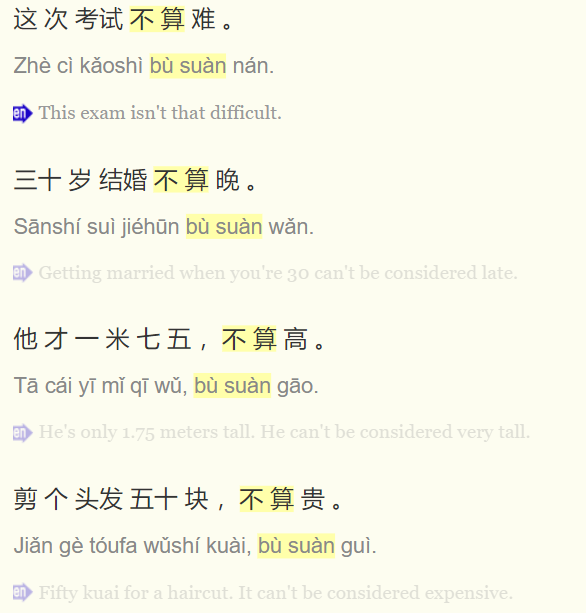The word 算 (suàn) has a number of uses which can be translated in a number of ways. The common theme is that 算 indicates some kind of judgment and may be thought of as “counts as” or “is considered to be.”
1. Used with a Noun
Subj. (+ 不) + 算 + Noun

2.Used with an Adjective
算 can also be used with an adjective. It adds a sense of “comparatively speaking,” as in, “in the grand scheme of things, this counts as….”
Subj. + 算 + Adj. + 的

Negative Form
This is essentially a straight negation of the affirmative form, but because it’s so commonly used, it’s worth giving providing extra examples.
Subj. + 不 + 算 + Adj.

Colloquial Sayings

算 + 了
means let it be, let it pass, forget about it.
Got it? Let’s see how much you’ve got! using “算” ,”没” or “没有”.
1 我___有钱的。(I am a rich man.)
2 他们30号那天都没有时间,要不聚会的事就___,我们改天再约。(They’re not available on the 30th, so let’s forget about the party and meet again some other time.)
3 今天___冷。(It’s not cold outside.)
4 A:我们要送麦克的花瓶碎了。(A: The vase we’re giving to Mike is broken.)
B:__再买个别的礼物给他。(B: Forget it and buy him another present.)